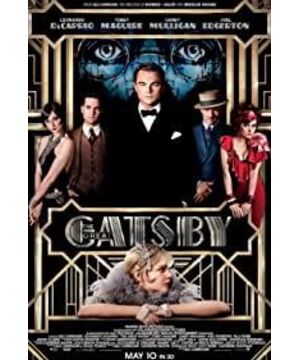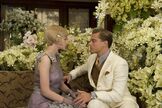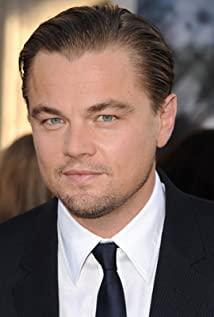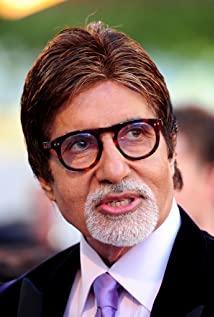This is a shallow, narcissistic and stupid woman. Whether I'm new to the world or I've read it all, I can't understand why Gatsby has been obsessed with her over the years. "The Great Gatsby," the original Fitzgerald, was shot by Baz Luhrmann, who directed "Moulin Rouge." After hearing about it, I hoped he would use Scarlett Johansson Playing this bitch, I might actually like Daisy too—or at least Daisy back in the day. But after seeing the actress who plays Daisy in the film, I have to admit that this woman succeeds in being annoying.
So I think there must be a reason for the writer or director to do this. Daisy, a symbol of the eastern United States at that time: materialistic, cynical, and no bottom line. Gatsby, on the other hand, symbolizes the vast Midwest region of the United States: poverty, simplicity, but there is a shining place in human nature. This story takes place in 1922. Corresponding to its disillusioned ending, within a few years, the United States experienced the worst economic crisis in history, tens of millions of people lost their jobs, and countless American dreams were broken. Roosevelt came to power in 1932 to implement the New Deal. Since then, an era has ended, and another truly great era has begun. This story seems to be a prophecy of it all.
Looking back now, do we like America in the 20s? We can find the answer in the movie, and my answer is that I neither liked America in the 1920s, nor did I like this movie. This movie, on the surface, is a running account of the original book. In essence, it falsifies an important detail: in the books, Gatsby may have known that Daisy would not be the last to come, making his death a real tragedy, while in the film, Gatsby may have known Gatsby's naive wait for Daisy's phone call to the last minute makes Gatsby's death somewhat comical. In the ending of the first story, Gatsby deceived us, and in the ending of the second story, we conspired to deceive Gatsby through the director's hand. It made me think that we also became Tom's accomplices.
The text in the original book seems to have magic power, the movie cannot be restored, and the 3D movie cannot be restored, even if there are 4D and 5D movies in the future, they cannot be restored. This is the failure of the film and the triumph of the word. Those seemingly ridiculous but actually sad words were processed by Baz Luhrman into exaggerated images like Tim Burton. The lack of talent Baz Luhrman was frightened by these delicate words, he only understood Despite the prosperity of those words, there is no way to grasp the loneliness behind the words.
Another Fitzgerald novel that has been adapted into a film is The Curious Case of Benjamin Button, directed by David Fincher. This is Fitzgerald's most successful film adaptation. The gloomy tones and the breathless atmosphere made this a masterpiece in film history. David Fincher is clearly more of a director than Baz Luhrmann, capturing the soul in Fitzgerald's work and then revamping the novel. In contrast, Baz Luhrmann is less of a director, he is more of a Fitzgerald fanboy, bringing the most accessible parts of the original to the screen, while turning a blind eye to the real essence . It was Fitzgerald's left-handed-right-handed victory, David Fincher's victory over Buzz Luhrmann, and Brad Pitt's victory over Leonardo DiCaprio.
"The Curious Case of Benjamin Button" is only a very inconspicuous short story among the brilliant Fitzgerald's many novels, and it is even difficult to find a Chinese translation. There are many similar examples. For example, Ang Lee turned Zhang Ailing's short story "Lust and Caution" into a movie, and Jiang Wen made "Ten Stories of Night" into a movie "Let the Bullets Fly". One of the director's criteria is to see if he can find those good stories that have been overlooked and fully tap their potential to become movie stars.
In fact, it doesn't make much sense to put "The Great Gatsby" on the screen, because it is almost destined to be unable to be adapted into a movie like a book like "Reminiscence of the Time Is Like Water". If there's one meaning to Baz Luhrmann's work, it's that it sets a new benchmark for failed adaptations of famous books.
View more about The Great Gatsby reviews











